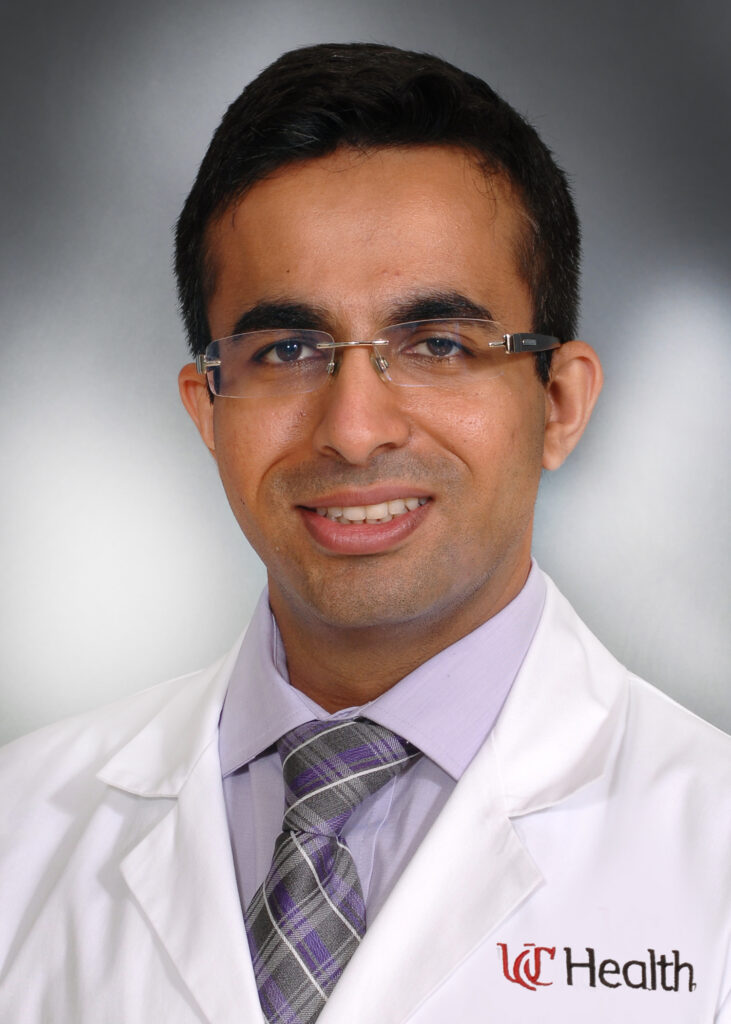Q & A with Arunab Mehta, MD, MEd, hospitalist, University of Cincinnati Medical Center, Cincinnati
Dr. Mehta was drawn to hospital medicine to care for acutely ill patients and because of the variety of career opportunities; he shares his experience as a member of The Hospitalist’s editorial board.
Hospitalists should be aware that there are numerous opportunities for career growth in the field of hospital medicine, such as quality improvement, research, administrative practice, medical education, and clinical practice.

Dr. Mehta
Q: Why did you choose a career in hospital medicine?
A: My interest in hospital medicine began during residency when I realized I enjoyed caring for patients who were acutely sick and seeing real-time improvements in their health in a matter of days after providing them with evidence-based care. I also liked the various fields within internal medicine and wanted to continue practicing patient-centered medicine with a broad lens. Hospital medicine also allowed me to mold the minds of trainees in medicine as well as implement higher-level processes to improve the care of patients admitted to the hospital, such as reducing infection rates and improving patient safety.
Q: What’s been your biggest success?
A: My biggest successes have been in the fields of medical education and program improvement. I had the opportunity to complete a Master’s in Health Professions Education degree and have been able to develop curricula, evaluate programs, and positively impact future generations of medical graduates. I have also been successful in improving hospital and patient-centered outcomes through my role as a former unit-based medical director, improving patient experiences while they are admitted to the hospital under stressful conditions. My work with SHM Northern Ohio/Lake Erie Chapter has enabled me to network with colleagues and has aided my professional development.
Q: What challenges have you overcome?
A: Like many hospitalists, COVID-19 was a big challenge that I had to overcome, especially since I was working at a hospital that primarily served COVID-19 patients in the early days of the pandemic. I took that challenge on, got myself involved in the committees in the hospital that made guidelines for the care we provided to our patients, and found myself making a larger impact on the health of our patients outside of direct patient care.
Q: What do you enjoy most about your work?
A: I enjoy the stimulation I get from working with medical learners and how we strive to keep improving ourselves. I also enjoy the challenges of working in large hospital systems and the opportunities I get to ensure that we’re accountable to our patients and that we continue to improve ourselves to provide high-quality, equitable health care.
Q: Why did you join SHM?
A: I happened to join SHM after noticing the positive impact the organization had made on some of my colleagues at the Cleveland Clinic regarding their clinical care and self-improvement opportunities, and I realized how I could use the knowledge and skills I learned at our conferences from colleagues at other institutions to improve care at my institution.
Q: Why did you become an editorial board member?
A: I wanted to become an editorial board member because I think I can provide some nuances to my favorite magazine related to my role in quality improvement, medical education, and clinical practice. I would provide learning opportunities for other members of the field to take back to their home institutions to improve the practice of medicine across the country.
Q: What’s the first page you turn to when you get your copy of The Hospitalist?
A: I usually open the “In the Literature” section of The Hospitalist because it is a favorite area where I can catch up on the latest articles from different journals that our fellow hospitalists at academic medical centers found useful and that might change the practice of medicine for me at a personal level.
Q: What’s your best piece of advice for new hospitalists?
A: I think hospitalists should be aware that there are numerous opportunities for career growth in the field of hospital medicine, such as quality improvement, research, administrative practice, medical education, and clinical practice. I feel like this is not a well-known fact for people who come out of training.
Q: What’s something someone would be surprised to know about you?
A: I do have a strong passion for tennis, including catching up on tennis matches in the middle of the night when they are played in other countries. I feel lucky to live in a city that hosts a major tennis tournament every year.
Q: What do you wish the world knew about hospitalists?
A: I wish the world was more aware of who hospitalists are and how they impact the lives of others. While patients are much more aware of the role of hospitalists now compared to five years ago, I think we might need to educate people about the invisible roles we play in hospital quality improvement, medical education, and clinical care.
Q: How do you stay motivated during stressful days?
A: I stay motivated by taking frequent breaks in between my work, traveling, exploring neighborhoods (including new coffee shops), and trying to get some sports and exercise.
Dr. Mehta is a hospitalist and assistant professor of clinical at the University of Cincinnati Medical Center in Cincinnati. He earned his medical degree from Topiwala National Medical College, Mumbai, India, and completed his residency at John H. Stroger Jr. Hospital of Cook County, Chicago.